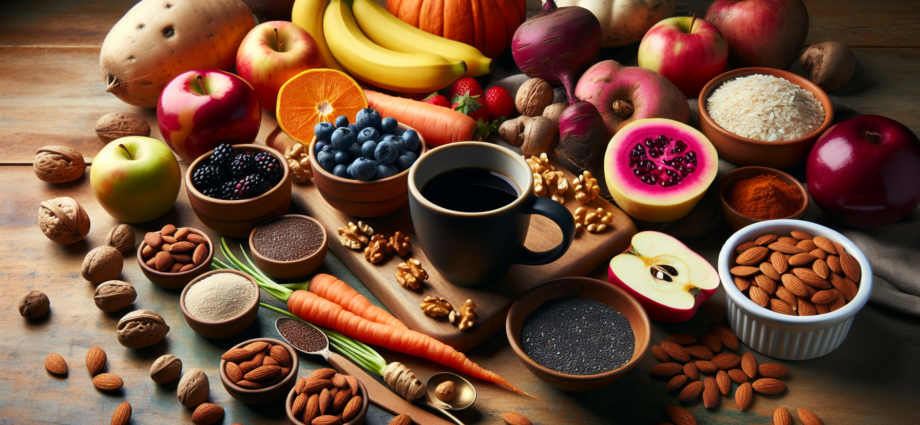
Paleo Diet and Athletic Performance: Optimizing Gut Health for Active Individuals
Introduction
The relationship between nutrition, gut health, and athletic performance is crucial for individuals seeking to optimize their physical abilities. One dietary approach gaining attention in the athletic community is the Paleo diet. This article delves into how the Paleo diet can enhance gut health to support athletic performance, covering topics such as:
- Paleo diet for endurance athletes
- Hydration strategies on a Paleo diet
- Pre-workout Paleo meal ideas
- Post-workout recovery on the Paleo diet
- Long-term benefits of combining Paleo and fitness
Understanding the Paleo Diet
Definition and Principles
The Paleo diet revolves around consuming foods our ancestors ate, focusing on lean meats, fish, fruits, vegetables, nuts, and seeds while excluding grains, legumes, dairy, and processed foods. This nutrient-dense diet aims to boost overall health and performance.
Nutritional Benefits
By providing essential vitamins, minerals, and healthy fats, the Paleo diet supports energy levels and recovery for active individuals. Its emphasis on whole foods aids digestion and reduces inflammation, key factors in optimizing athletic performance.
Paleo Diet for Endurance Athletes
Endurance Training Support
Endurance athletes benefit from the sustained energy levels provided by the Paleo diet, avoiding energy crashes associated with processed foods. The diet’s nutrient density aids in muscle repair and overall endurance.
Hydration Strategies
Staying hydrated is vital for athletic performance. While the Paleo diet prioritizes whole foods over sugary drinks, athletes can maintain hydration levels with water-rich fruits and vegetables like watermelon and cucumbers.
Pre-Workout Meal Ideas
Fueling up with a balanced meal before exercise is crucial. A Paleo-friendly option could include grilled chicken with sweet potatoes and a side of mixed berries for sustained energy and muscle support.
Post-Workout Recovery on the Paleo Diet
Nutrient Replenishment
After a workout, replenishing glycogen stores and providing protein for muscle repair are essential. A post-workout Paleo meal might consist of a salmon salad with avocado and a side of roasted vegetables for optimal recovery.
Long-Term Benefits
Consistently combining the Paleo diet with regular exercise can lead to long-term benefits such as improved endurance, muscle strength, and overall well-being. The natural, whole foods in the diet support sustainable health and performance.
Conclusion
Unlocking Athletic Potential with the Paleo Diet
The Paleo diet offers athletes a natural and nutrient-dense way to fuel their bodies for optimal performance. By prioritizing gut health through whole foods, hydration, and smart meal choices, individuals can enhance their athletic abilities and long-term fitness goals.
Nutritional Benefits of the Paleo Diet
The paleo diet offers a myriad of nutritional benefits. It’s rich in protein, essential for muscle recovery and growth, and healthy fats that provide sustained energy. The diet also includes a high intake of fruits and vegetables, which are packed with antioxidants and vitamins that boost immunity and combat inflammation. By eliminating processed foods and sugar, the paleo diet helps regulate blood sugar levels, reducing energy crashes and promoting overall well-being.
Paleo Diet for Endurance Athletes
Endurance athletes, such as marathon runners or cyclists, have unique dietary needs to sustain their prolonged physical exertion. The paleo diet can effectively cater to these requirements. By focusing on high-quality protein and fats, the diet provides long-lasting energy for these athletes. The carbohydrates from fruits and vegetables are released slowly into the bloodstream, maintaining stable energy levels and preventing sudden crashes during performances.
Hydration Strategies on a Paleo Diet
Hydration is crucial in any athletic performance. On a paleo diet, athletes are encouraged to hydrate primarily with water, which is free of sugars and artificial additives. Herbal teas and coconut water can also be great sources of hydration, the latter being a natural source of electrolytes. Athletes should be mindful of their hydration levels, particularly during and after intense workouts, to replenish any lost fluids and electrolytes.
Pre-Workout Paleo Meal Ideas
Planning a pre-workout meal on a paleo diet can be simple and delicious. Meals should be balanced, with a focus on lean proteins to support muscle function, carbohydrates for energy, and healthy fats for sustained energy release. Some ideas include a smoothie made with spinach, avocado, and a scoop of paleo-friendly protein powder or a bowl of grilled chicken with a side of sweet potatoes and green vegetables.
Post-Workout Recovery on the Paleo Diet
Post-workout nutrition is equally, if not more, important as pre-workout nutrition. A post-workout meal on the paleo diet should include a good amount of protein to aid in muscle recovery, and carbohydrates to replenish glycogen stores. A simple post-workout meal could be a salmon fillet with a quinoa salad or a paleo protein shake with a banana.
Long-Term Benefits of Combining Paleo and Fitness
Combining the Paleo diet with a consistent fitness routine can yield long-term health benefits. These include improved cardiovascular health, stronger muscles, enhanced mood and mental health, and a lower risk of chronic diseases. The nutrient-rich nature of the Paleo diet complements an active lifestyle, providing the necessary fuel for optimal performance.
Case Studies and Real-World Applications
Many athletes have adopted the paleo diet and seen significant improvements in their performance. For instance, NBA player Ray Allen attributed his increased endurance and faster recovery times to the Paleo diet. Similarly, Ironman triathlete Nell Stephenson reported that her performance significantly improved after shifting to a Paleo diet, with better stamina and faster recovery times.
Conclusion
The Paleo diet can be a powerful tool in optimizing athletic performance. With its focus on nutrient-dense, whole foods, and the exclusion of processed foods and sugars, it provides the essential nutrients needed for peak performance and recovery. It’s worth noting that individual needs may vary, so it’s important to listen to your body and adjust your diet as needed to meet your specific athletic demands.

